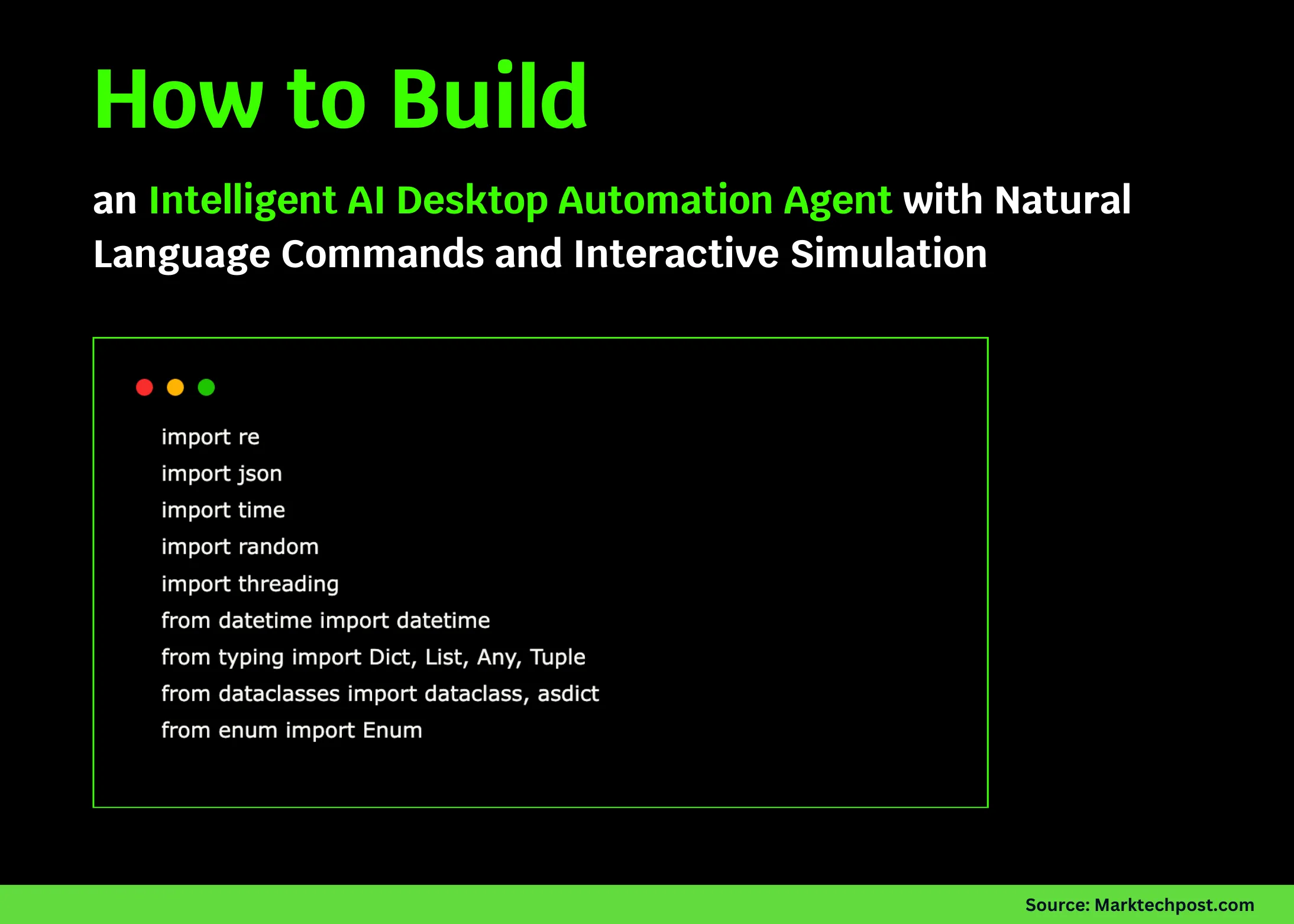
Unlocking AI Potential: Build Your Own Intelligent Desktop Automation Agent
In a recent tutorial by Asif Razzaq, professionals and enthusiasts alike are guided through the innovative process of creating an advanced AI desktop automation agent that operates seamlessly within Google Colab. This agent is designed to interpret natural language commands, simulating a range of desktop tasks including file operations, browser actions, and complex workflows.
Key Features of the Automation Agent
- Natural Language Processing: The agent utilizes Natural Language Processing (NLP) to understand and execute user commands, making it intuitive for users.
- Interactive Simulation: Users can interact with a virtual environment that provides immediate feedback on task execution, enhancing the learning experience.
- Task Execution: Capable of simulating various desktop activities, the agent allows users to explore automation concepts without relying on external APIs.
Razaq emphasizes that by combining NLP with task execution and a simulated desktop, the system not only feels powerful but also significantly simplifies the automation process. This advancement opens up new possibilities for professionals who wish to streamline their workflows and enhance productivity.
The tutorial begins with essential Python libraries necessary for data handling, visualization, and simulation. It sets up Colab-specific tools that run the tutorial interactively, ensuring a smooth learning experience.
This project is highly beneficial for software engineers, data scientists, and tech enthusiasts looking to deepen their understanding of AI and automation technologies.
Rocket Commentary
The tutorial by Asif Razzaq highlights a significant advancement in the realm of AI desktop automation, notably through the integration of Natural Language Processing. This innovation is not just a technical feat; it represents an opportunity to democratize complex workflows for professionals across various fields. However, while the interactive simulation aspect enhances learning, we must remain vigilant about the ethical implications of such technology. As businesses increasingly adopt AI tools, the focus should be on ensuring accessibility and transparency, making these powerful tools available to a broader audience without compromising ethical standards. The potential for transformative impact is immense, but it requires a commitment to responsible development and user empowerment.
Read the Original Article
This summary was created from the original article. Click below to read the full story from the source.
Read Original Article